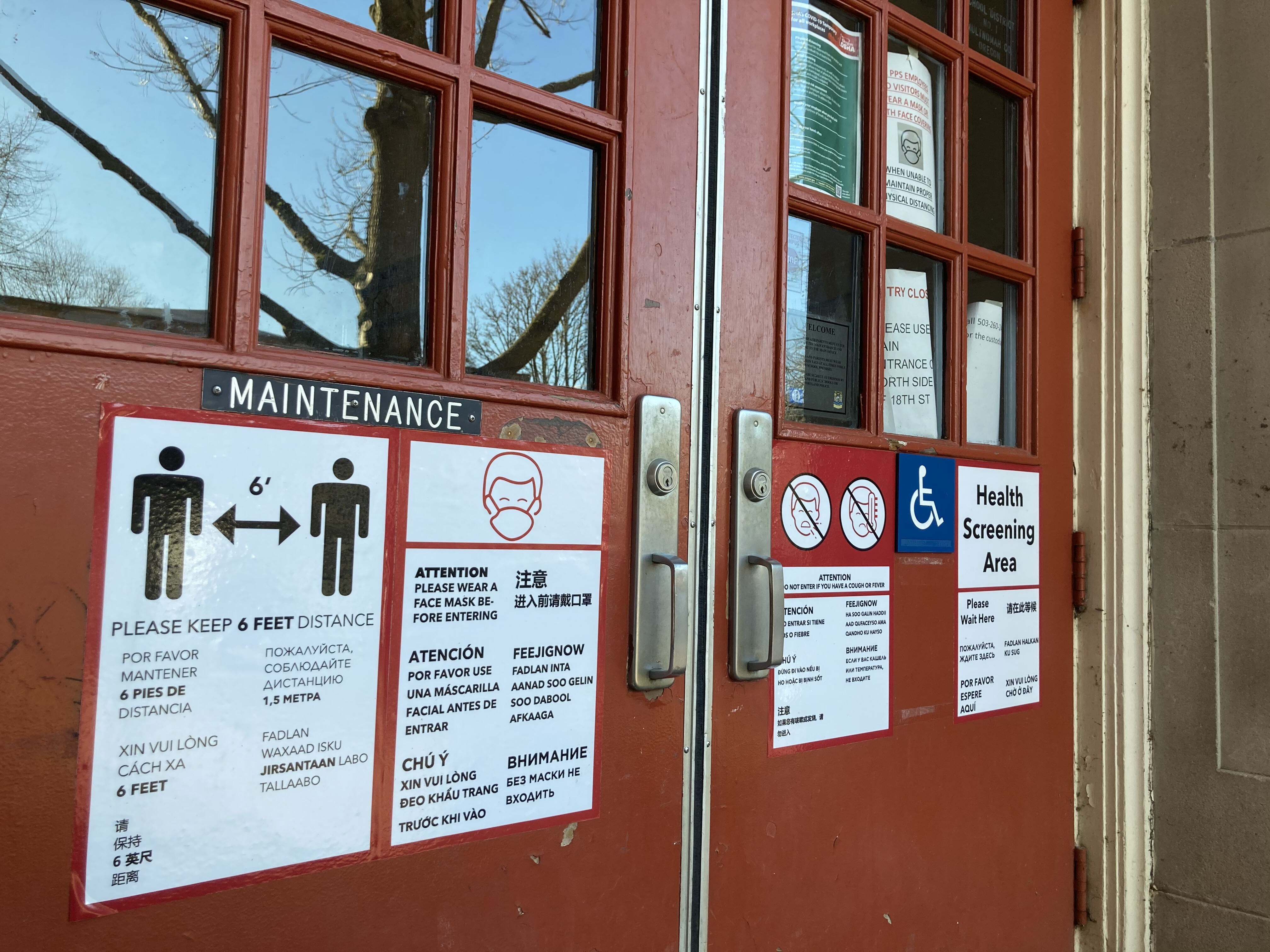
Portland Public Schools have been closed to in-person learning since March 2020. Signs on the front doors at Sabin Elementary School lay out COVID-19 health procedures for the anticipated return of students.
Rob Manning / OPB
Oregon Gov. Kate Brown has ordered all public schools to offer some kind of in-person instruction by mid-April. But parents still disagree on what’s best for schools and students.
Rashelle Chase — an early childhood educator, mother and a co-founder of the advocacy group Mxm Bloc — said Friday on Think Out Loud that it would make sense for students to just return to the classroom in the fall.
“As challenging as [distance learning] has been for working families, juggling child care and all of these sorts of things, we’ve been doing it for a year and we’ve gotten things worked out — imperfect though that may be,” Chase said.
Getting students back into the classroom for only a few months before summer break is just adding unnecessary complications to families’ lives, Chase said, noting that going back in the fall is a more viable option to give teachers and schools more time to prepare.
“I think it’s absolutely possible to have a safe reopening in September, particularly since most adults and family members will have had the opportunity to be vaccinated by then,” Chase said.
Other parents say the return to in-person learning can’t come soon enough.
Rene Gonzalez, a lawyer, father and a co-founder of ED300 — a group that has been urging the state to reopen for months — said he’s lost faith in the governor’s decisions.
“It’s a bit ‘wait-and-see,’” Gonzalez said. “In December, she indicated that we’d be reopened statewide by Feb. 15. That date has come and gone. … So, there is not a high degree of confidence in the governor’s words on the subject.”
Gonzalez said Brown’s guidelines for the return to in-person learning are also still too strict. ED300 is urging the state to eliminate the 100-student cohort and 35-square-feet per student limits. It’s also pushing for a return to co-curricular activities, among other demands.
Gonzalez said Friday that he thinks the return to the classroom will be particularly beneficial for students of color, though he acknowledged that some families may be hesitant to come back.
“I think there has to be an education piece on the lack of high rates [of COVID-19] in schools once they reopen,” Gonzalez said. “I think with time when folks see that it can be done successfully, … I think the rest will come along.”
Chase said by forcing schools to return to some form of in-person learning, communities of color and other underrepresented communities will be negatively impacted.
“As families are coming back, it remains true that families of color have less access to the vaccine while still being more likely to contract COVID, be hospitalized for COVID, die from COVID,” Chase said.
Chase also noted the inequity of some families potentially having the choice to continue distance learning, or return to the classroom in a hybrid setting, rather than fully in-person.
“My concern is that we will see the families that remain in hybrid be those families who have historically been underserved,” she said. “We’ve heard a lot of noise about reopening for their benefit, but if they’re the ones who are remaining in [distance learning] and not actually benefitting from this, then what are we doing to ensure equity for those families?”
Contact “Think Out Loud®”
If you’d like to comment on any of the topics in this show or suggest a topic of your own, please get in touch with us on Facebook or Twitter, send an email to thinkoutloud@opb.org, or you can leave a voicemail for us at 503-293-1983. The call-in phone number during the noon hour is 888-665-5865.
